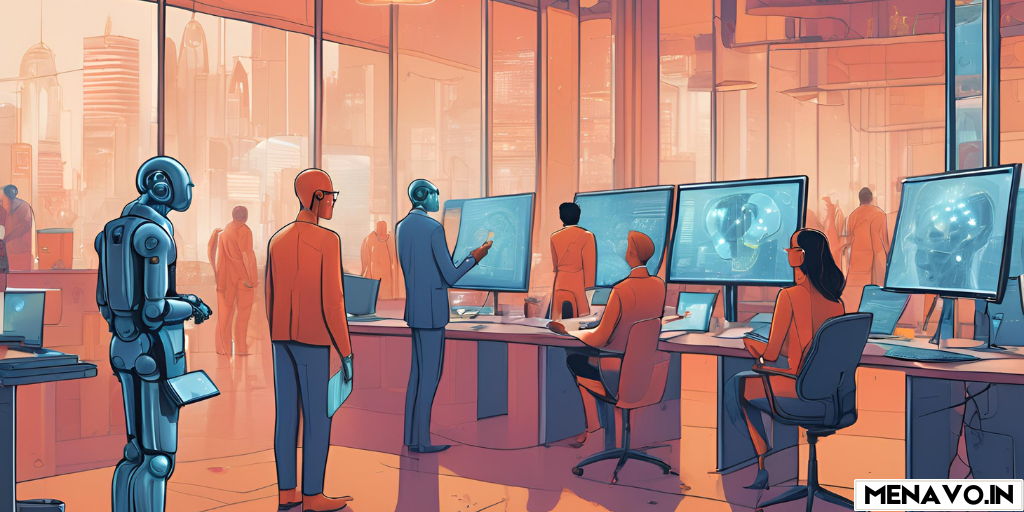(Impact of AI on job markets)is rapidly transforming various industries, and one of the areas it’s having a profound impact on is the job market. AI’s influence is creating both exciting opportunities and concerns for the future of work. Let’s explore how AI is affecting jobs in simple terms.

1. Automation of Routine Tasks?
One of AI’s key roles is automating repetitive tasks. This means jobs that involve routine, manual tasks like data entry, basic customer service, and simple manufacturing processes are increasingly being done by machines. This allows companies to operate more efficiently but may reduce the number of jobs available in these areas.
2. New Job Opportunities?
While some jobs are being automated, AI is also creating new roles that didn’t exist before. Fields like AI programming, machine learning, and data analysis are booming. As AI continues to grow, so does the demand for professionals who can develop and manage these technologies. People who gain skills in these areas will find new career opportunities in tech and beyond.
3. Changing Skill Requirements?
AI is changing the skills employers are looking for. Jobs are becoming more tech-focused, and companies need workers who can operate and interact with advanced technologies. This means that in many industries, employees need to learn new skills, such as programming or using AI tools, to stay competitive in the job market.
4. Collaboration Between Humans and AI?
AI isn’t just replacing jobs—it’s also enhancing human work. In many cases, AI tools help workers by taking over routine tasks, allowing employees to focus on more complex and creative parts of their jobs. For example, in healthcare, AI can help doctors by analyzing large amounts of data quickly, enabling them to make more accurate diagnoses.
5. AI and Job Displacement?
There is a legitimate concern that AI may lead to job displacement, especially in sectors like manufacturing, customer support, and logistics, where automation is already well underway. Workers in these fields may need to upskill or reskill to move into new roles, as companies adopt AI-powered tools.
6. Industries Most Affected by AI?
Some industries are feeling the impact of AI more than others. For example:
- Manufacturing: AI-driven robots are taking over assembly line tasks.
- Finance: AI is used for data analysis, fraud detection, and even making trading decisions.
- Retail: AI chatbots and automation are transforming customer service.
- Healthcare: AI assists in diagnostics, personalized treatments, and managing patient data.
7. Preparing for the Future of AI?
As AI continues to evolve, it’s essential for both employees and companies to adapt. Lifelong learning and continuous skills development are more important than ever. Workers who focus on acquiring technical skills and embracing change will be better positioned to thrive in an AI-driven job market.
Conclusion
(Impact of AI on job markets) is undoubtedly transforming the job market, but it doesn’t have to be a threat. While automation may reduce some job opportunities, it is also creating many new ones. By understanding the changes AI brings and preparing for them, workers can find exciting opportunities in the growing fields that AI is shaping.
In short, AI is changing how we work, but with the right skills, it can open doors to a promising future.